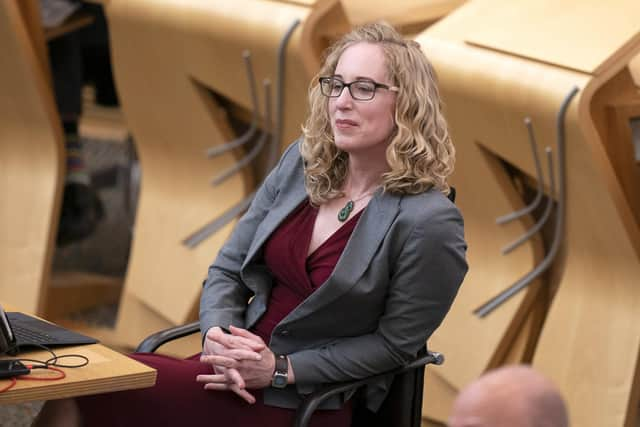Deposit return scheme Scotland: Why Lorna Slater's no-show was not good enough as SNP feel the Green pinch of radical politics
This masked the fact that while the SNP has passed major policies – minimum pricing of alcohol, free tuition fees, Scottish Child Payment – much has been in a comfortable, middle-class appeasing, free-at-point-of-use realm.
But has any of it been truly radical? There has been no great reform of education that has actually involved a substantial elimination of the poverty-related attainment gap, to use SNP parlance.
Advertisement
Hide AdAdvertisement
Hide AdThere has been no major rewriting of how the NHS ultimately works. Social care, that most urgent of reforms, is subject to a torturous tug-of-war just the 16 years into the SNP’s time in government.


Bringing the Scottish Greens into government has, therefore, knocked that comforting feeling of vague progress underlined by 45 per cent polling figures into the venue of unapologetic left-wing policy-making.
While the SNP, particularly under Nicola Sturgeon, favour caution and communication over other approaches, the Scottish Greens favour urgency and outcome – the rent freeze being an example.
Government necessarily requires compromise, so the Scottish Greens have had certain aspects of their radicalism knocked out of them for ministerial positions and direct influence. Education policy, where the Greens nearly sacked Deputy First Minister John Swinney over the exams scandal, is the most glaringly obvious example of this.
But on issues such as the deposit return scheme (DRS), included in the SNP manifesto despite taken forward by Green minister Lorna Slater, that comforting SNP competence is replaced by actual change, which, shockingly, people do not like.
One Government figure told this newspaper the opposition to the DRS was not unexpected. After all, it was asking businesses to pay for something that up till now was on the taxpayers’ pound.
Ultimately, the Scottish Greens favour progress over optics. That is a radical change for the SNP.
Alongside a more aggressive approach to opposition politics, this has led some of those on the right of the SNP to get jittery. You get the feeling the SNP’s Fergus Ewing enjoys this as his new role outside of Cabinet. Fellow SNP MSP John Mason straddles this internal shifty-ness on social issues.
Advertisement
Hide AdAdvertisement
Hide AdIt’s a decidedly uncomfortable and new position for Ms Sturgeon, though listen closely to her answers at First Minister’s Questions last week and it is clear change to the DRS to ease the burden on small businesses is almost guaranteed prior to the go-live date in August.
The price of government for the Scottish Greens, however, should be ownership. Ms Slater’s – and the Government – decision to avoid the media over the weekend and this morning is not good enough. When there are questions, government should answer.
Her performance at Holyrood committees where, gleefully posted on Twitter by the Scottish Conservatives, she belied a lack of attention to detail by admitting she didn’t know a key point, provides explanation enough for why those invites to appear on the radio and the TV were refused.
Avoiding these questions, posed in a public forum and not in the sanitised world of the Scottish Parliament, is unsustainable.
Want to hear more from The Scotsman's politics team? Check out the latest episode of our political podcast, The Steamie.
It's available wherever you get your podcasts, including Apple Podcasts and Spotify.
Comments
Want to join the conversation? Please or to comment on this article.
